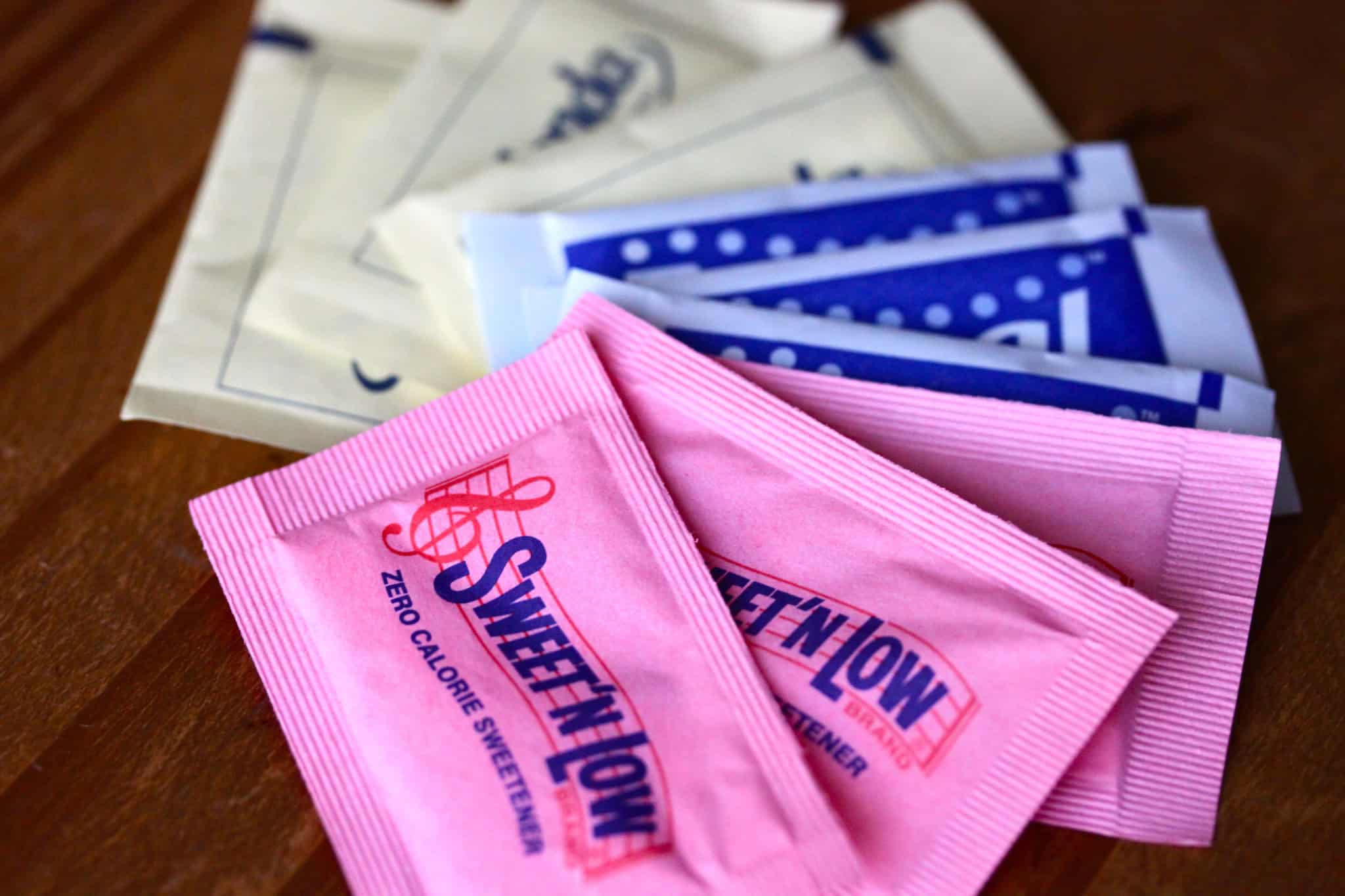We avoid sweets and sugary drinks when trying to lose or maintain a healthy weight. These items are usually pretty high in calories, and most of them comes from the sugar itself. So if you can eat or drink the same amount with no sugar or calories, why wouldn’t you?
The FDA has 5 artificial sweeteners that are approved: saccharin (Sweet’N Low), acesulfame (Sunett, Sweet one), aspartame (NutraSweet, Equal), sucralose (Splenda) and neotame which is only used in food manufacturing. Although the FDA approves of these, we do have some concerns with people using these sweeteners.
Research shows that they are bad for you! They are known carcinogens, they wreak havoc on your gut microbes, destroying beneficial bacteria and causing glucose intolerance. And they make you even hungrier! Normally, when we eat something sweet, it comes with lots of calories. This is not the case with artificial sweeteners and this is very confusing to the brain. Therefore the brain tries to correct the problem by making you hungrier to get those missing calories so you end up eating more! Artificial sweeteners increase hunger, slow metabolism, and increase body fat!
It also might be that consuming artificial sweeteners can change how we taste other foods. These sweeteners are so low calorie because they are much more potent than than regular sugar. Over stimulating sugar receptors in our taste buds can limit our taste tolerance for other foods like fruits and vegetables, making them less appealing. In the same way, always using artificial sweeteners can prevent us from associating sweet tastes with high calorie foods/drinks. This can cause us to crave an even higher amount of sweets and gain weight, which we were trying to prevent in the first place. Just like caffeine, artificial sweeteners can be addictive, especially if you consume them frequently. This can make it difficult to give up those sugary drinks or snacks whenever you want.
Sugar alcohols are derived from plants and are mainly used in food manufacturing. They are easy to find on the food label because they all end in “-ol” mannitol, sorbitol, xylitol, and malitol to name a few. Sugar alcohols are not absorbed well in the intestines which can lead to GI issues such as diarrhea, bloating, gas and cramping. They also mess with your gut microbes and cause bacterial overgrowth plus they keep you hooked on sugar! So for the most part try to limit your consumption but Erythritol looks to be the best in the bunch if you have to pick one! It has basically no calories and causes no GI distress. It will not raise your blood sugar or insulin levels and it is sold in stores for home use! Click here to buy!
When you want to use a little sweetness but want to avoid sugar or artificial sweeteners, there are a few options to use for a more natural sweetener. If calories and carbs are not a big issue look for local pure honey, molasses, organic palm sugar, date sugar, coconut sugar or organic maple syrup.
If you are looking for a non-caloric options stick with stevia, monk fruit, or Erythritol but all in moderation
Stevia: Stevia is 200 to 300 times sweeter than sugar. Commercial stevia sweeteners are made from a compound of the stevia plant. Refined stevia Reb A sweeteners have zero calories, zero fat, and zero carbs and don’t raise blood sugar levels. Some contain other sweeteners such as agave or turbinado sugar so be sure to read your labels. Here is the link to the one I use most
Monk Fruit: Monk fruit is a small, green gourd that resembles a melon. It’s grown in Southeast Asia. Monk fruit extract is 150 to 200 times sweeter than sugar. The extract contains zero calories, zero carbohydrates, zero sodium, and zero fat. It is safe for children, pregnant women, and breast-feeding women. Monk fruit gets its sweetness from antioxidant mogrosides and based on research it has the potential to be a low-glycemic natural sweetener. Some monk fruit sweeteners contain other sweeteners such as dextrose so be sure to read your labels. Click here to buy!
Although artificial sweeteners are FDA approved, there are some adverse effects when they are used too much, and we aren’t entirely sure what all they can do to our bodies. For optima health I would encourage you to stay away from artificial sweeteners as much as possible! When in doubt and you are needing a sweetener, try using a more natural sweetener (like the ones listed above) in sparing amounts.
If you need help getting on track with your health and healthy eating I want to help you! In the program I run we focus on whole food nutrition and I teach you how to live a healthy life that is manageable in your crazy schedule!





